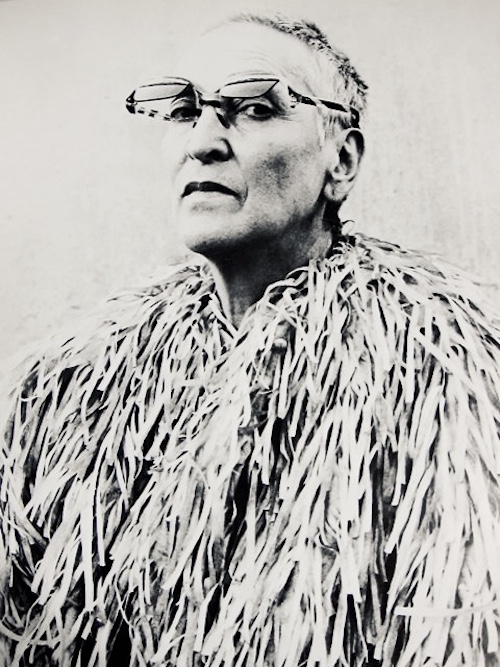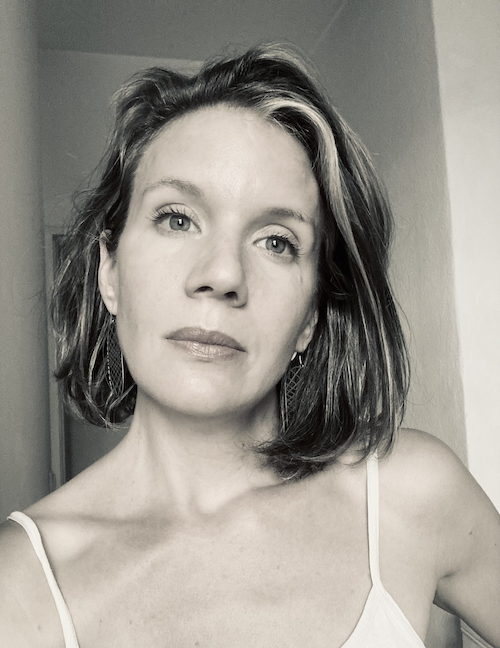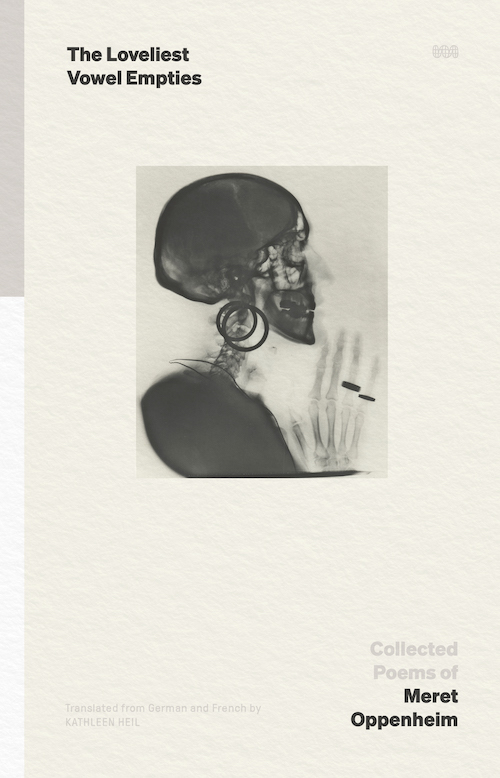The forest and fields are no longer visible, nearly,the mist hides the meadows where forgotten cropsdrop their seeds. The evening sun reposeson a honey-colored cloud,dangling its skeletal hand as shadowywaves pass through its fingers. At the edge of the woodsa lost hunter asks the deer for a glass of water.Stillness abounds.—Les prés et la forêt ne sont presque plus visibles,la brume cache les champs où des moissons oubliéeslaissent tomber leurs graines. Le soleil de la nuit s’allongesur un nuage couleur de miel.Sa main de squelette pend et les ondesde l’ombre passent par ses doigts. A la lisière du boisun chasseur égaré demande aux cerfs un verre d’eau.Tout est si calme.__Die Wiesen und der Wald sind fast nicht mehr sichtbar,der Nebel verbirgt die Felder, wo vergessene Erntenihre Körner fallen lassen. Die Nachtsonne legt sich aufeine honigfarbene Wolke.Ihre Skeletthand hängt herab, und durch ihre Fingerfließen die Wellen des Schattens. Am Waldrand bittetein verirrter Jäger die Hirsche um ein Glas Wasser.Alles ist so still.
[The forest and fields are no longer visible, nearly,]
“This poem numbers among the handful Oppenheim wrote in French and then translated herself into German.”
Feature Date
- July 13, 2023
Series
- Translation
Selected By
Share This Poem
Print This Poem
“[The forest and fields are no longer visible, nearly,]” from THE LOVELIEST VOWEL EMPTIES: by Meret Oppenheim.
Published by World Poetry Books.
English Copyright © 2023 by Kathleen Heil.
All rights reserved.
Reproduced by Poetry Daily with permission.

Claude Lê Anh
The Swiss artist Meret Oppenheim was born in Berlin in 1913 and died in Basel in 1985. Best known for Object, her fur-lined teacup from 1936, her expansive body of work included painting, works on paper, and object constructions, as well as jewelry designs, public sculpture commissions, and poetry. From 2021–2023 her work was the subject of a major exhibition, the first transatlantic retrospective of her work, a collaboration between MoMA, The Menil Collection, and Kunstmuseum Bern.

Kathleen Heil is an artist working with languages of the body and written word, whose practice encompasses dance/performance and the writing and translating of poetry and prose. Her work appears in The New Yorker, The Common, Lit Hub, The Paris Review, and elsewhere. She is the recipient of grants from the NEA, German Translators’ Fund, and Robert Rauschenberg Foundation, among others. Originally from New Orleans, she lives and works in Berlin.
The collected poems of legendary Swiss Surrealist Meret Oppenheim, for the first time in English.
"What an ingenious way of translating this superbly ingenious poet/artist! Over and over, Kathleen Heil selects a word which many would find out of the way, a true delight. To me, it feels as deeply surrealist as possible. Such a gift proves true throughout this all-in-all inventive rendering. The extraordinary Meret Oppenheim deserves no less!"
—Mary Ann Caws
"I am in awe of Meret Oppenheim’s poems, a seismic force heretofore unknown to me. Her aesthetic compatriots include Alejandra Pizarnik, Georg Trakl, Max Jacob, and Paul Celan—artists of deep symbol, deep void. Kathleen Heil’s translations are themselves works of the highest literary refinement and ingenuity. To read Oppenheim’s lyric bulletins, conveyed tactfully into English, is to feel that we are plunging for the first time into the pure waters of poetry itself, impervious to fad. No dross, no affectation: instead, Oppenheim gives us strangeness, tone, translucency."
—Wayne Koestenbaum
Poetry Daily Depends on You
With your support, we make reading the best contemporary poetry a treasured daily experience. Consider a contribution today.




